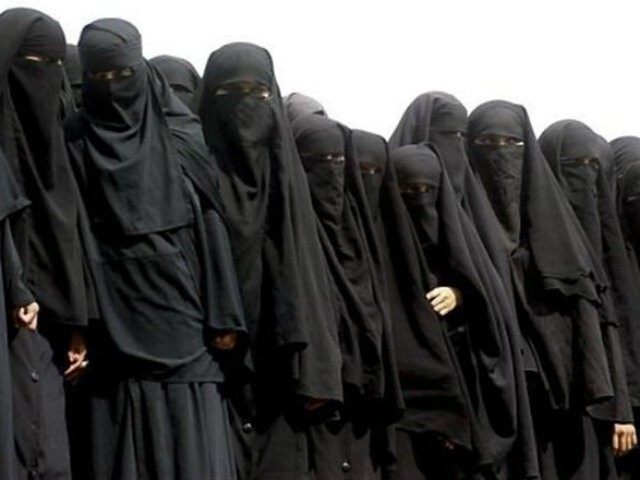The “Al-Khansa Kateeba” purports to be the all-female division of the Islamic State’s United Cyber Caliphate.
Foreign Desk News reports on the group’s new propaganda video, a mixture of boasting over successful hacking adventures and threats against anyone who tries to expose the identity of group members:
“Shortly after the announcement of the creation of a brigade that consists of female cadres within the ranks of the team, the muwahidat [female Islamic warriors] answered the call and formed a force that disturbs the kuffar and made them sleep deprived,” the video, posted to an encrypted Telegram channel as well as on YouTube, stated.
The women’s division, seemingly formed over the past month, already claims ‘success’ in the form of hacking ‘over 100 Twitter accounts during March.’
The Foreign Desk has not been able to verify the validity of these claims, but upon examination, several of the Twitter accounts listed in the video appear to be discarded accounts that have not been used for several months, sometimes years.
In a stark message addressing anyone trying to expose them, the women warn, “We say to him who claimed that he has our secrets, come forward and face us.”
The video concludes with a stark message “And it’s only the beginning,” listing an encrypted email for potential recruits to get in touch.
The Middle East Media Research Institute notes that the women of the group also style themselves as sahabiyyat, essentially descendants of the honored female companions of Mohammed. One of their slogans is, “We spam kuffar [infidels] to disrupt communications.”
There is some debate over whether these hackers are full-blown members of ISIS or sympathizers seeking to help the Islamic State with online mischief. The Al-Khansa brigade in ISIS-controlled areas of Syria is primarily the women’s police force, infamous for its cruelty. Many of its members are of European extraction.
The main Cyber Caliphate group released its latest “kill list” of almost 9,000 targets in early April, including President Donald Trump. Analysts said most of the list appeared random, including over a thousand names from the U.K. The list was accompanied by instructions to “kill them wherever you find them.”
The leader of the Cyber Caliphate, Ohsed Agha, was reportedly killed by a U.S. drone strike on the Islamic State’s Syrian capital of Raqqa in March.

COMMENTS
Please let us know if you're having issues with commenting.